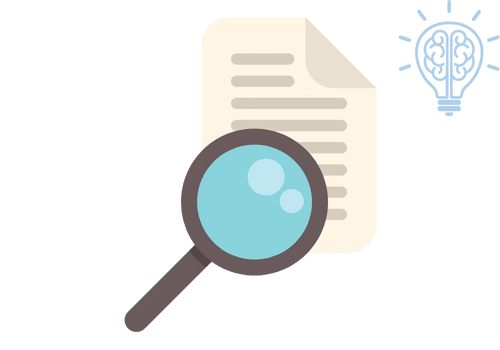What Is Attention Control?
Attention control is the ability to consciously direct and sustain focus while filtering out distractions. It allows individuals to stay engaged in tasks, shift focus when needed, and avoid getting sidetracked by irrelevant stimuli. Strong attention control is essential for learning, productivity, and overall cognitive efficiency.
Without it, distractions take over, leading to difficulties in completing tasks, following conversations, or absorbing new information. This executive function skill is crucial in both academic and professional settings, where maintaining focus over extended periods is necessary for success.
Why Is Attention Control Important?
Attention control impacts multiple aspects of cognitive function and daily life. Strong attention control leads to:
🎯 Improved Focus
Allows for deep concentration on tasks without frequent mental wandering.
🛑 Reduced Distractions
Helps filter out irrelevant information, keeping the mind engaged in the present task.
⏳ Better Time Management
Prevents wasted time caused by task-switching and distraction.
🗣️ Enhanced Communication
Supports active listening, making it easier to follow conversations and retain information.
📈 Increased Productivity
Minimizes procrastination and boosts task completion rates.
Types of Attention Control
There are different types that influence how we process information:
🔄 Sustained Attention
Maintaining focus over long periods without losing engagement (e.g., studying for an exam or working on a report).
🔄 Selective Attention
Filtering out distractions to concentrate on a specific task (e.g., ignoring background noise in a café while reading).
🔄 Divided Attention
Handling multiple tasks at once while distributing focus appropriately (e.g., taking notes while listening to a lecture).
🔄 Alternating Attention
Switching focus between different tasks efficiently without losing track (e.g., responding to emails while managing a project).
How Attention Control Relates to Executive Function
Attention control is a core component of executive function, influencing:
- Task Initiation: The ability to start tasks without getting sidetracked.
- Inhibitory Control: Resisting distractions, such as checking social media instead of working.
- Working Memory: Holding and manipulating information without losing focus.
- Self-Monitoring: Recognizing when attention is drifting and redirecting focus.
- Cognitive Flexibility: Adjusting focus when needed, such as shifting between tasks efficiently.
Signs of Weak Attention Control
If you struggle, you may notice:
- ⚡ Frequently losing track of thoughts or conversations.
- 📉 Difficulty staying focused for long periods.
- 📱 Getting easily distracted by social media, notifications, or background noise.
- ⏳ Struggling to complete tasks without frequent interruptions.
- 🚀 Feeling the urge to switch tasks before finishing the current one.
Strategies to Strengthen Attention Control
While challenging, it can be improved with deliberate practice and effective strategies.
✅ 1. Use the “Attention Reset” Method
If you catch yourself getting distracted, pause, take a deep breath, and refocus on the task at hand.
✅ 2. Limit Digital Distractions
Turn off notifications, use website blockers, or set your phone to “Do Not Disturb” while working.
✅ 3. Practice Mindfulness and Meditation
Regular mindfulness exercises help train the brain to maintain focus and resist distractions.
✅ 4. Use the Pomodoro Technique
Work in focused 25-minute sessions with 5-minute breaks to sustain attention without burnout.
✅ 5. Set Clear Goals and Priorities
Break tasks into small, manageable steps to make it easier to stay engaged.
✅ 6. Create an Optimal Work Environment
Use noise-canceling headphones, declutter your workspace, and minimize background distractions.
✅ 7. Try Active Listening Techniques
When in conversations or meetings, repeat key points in your head to stay engaged and improve retention.
✅ 8. Strengthen Cognitive Flexibility
Train your brain to shift focus efficiently by engaging in puzzles, strategic games, or problem-solving exercises.
How Executive Function Coaching Can Help With Attention Control
For individuals struggling with attention control, executive function coaching provides personalized strategies to enhance focus, minimize distractions, and improve productivity. Coaching can assist with:
- Identifying and eliminating attention drains.
- Developing structured work routines to maintain focus.
- Strengthening impulse control to resist distractions.
- Enhancing cognitive flexibility for efficient task switching.
By applying these techniques, individuals can improve their ability to concentrate, complete tasks efficiently, and build stronger executive function skills.
📞 Want to improve your attention control? Contact us for executive function coaching today!




